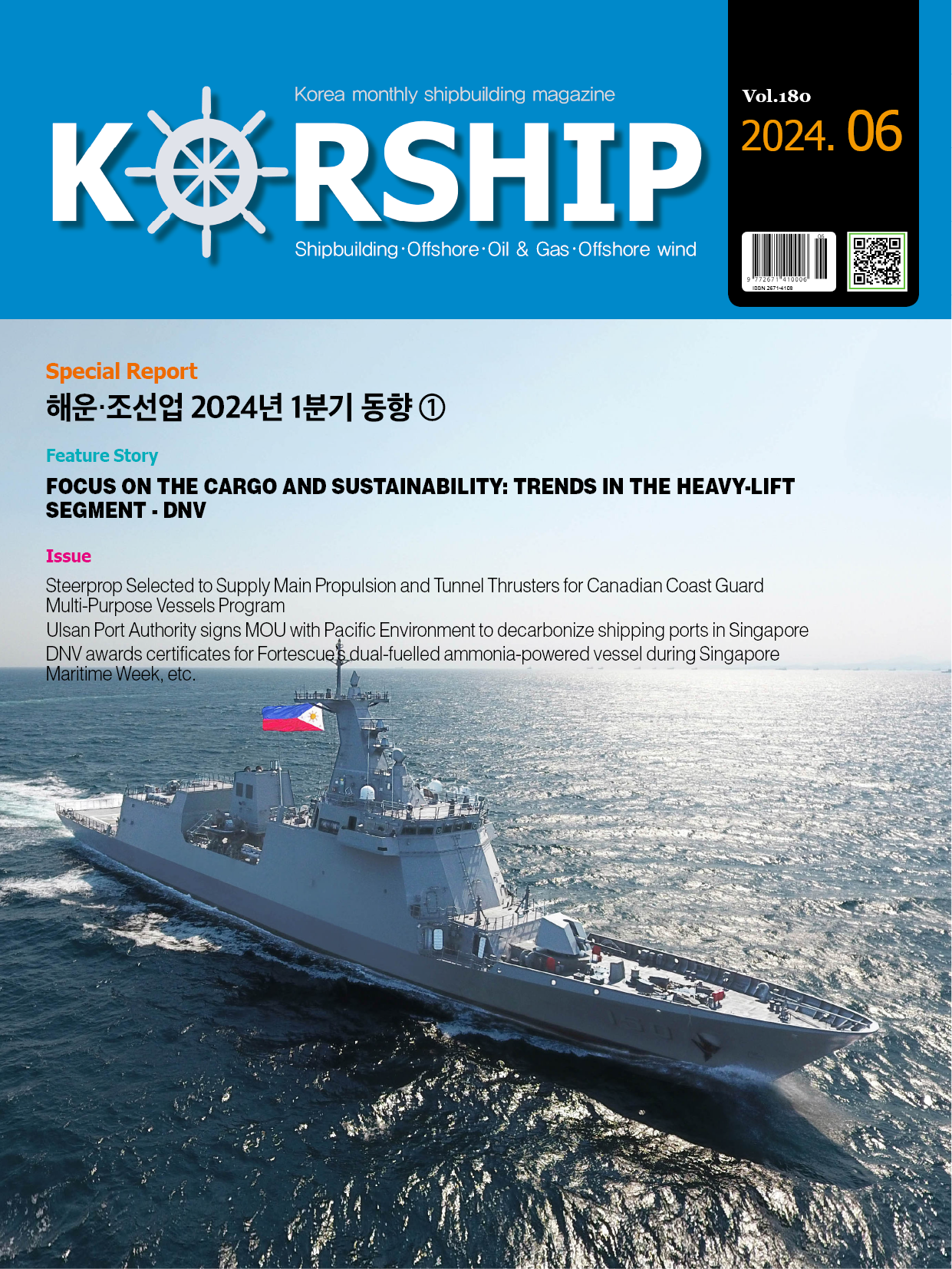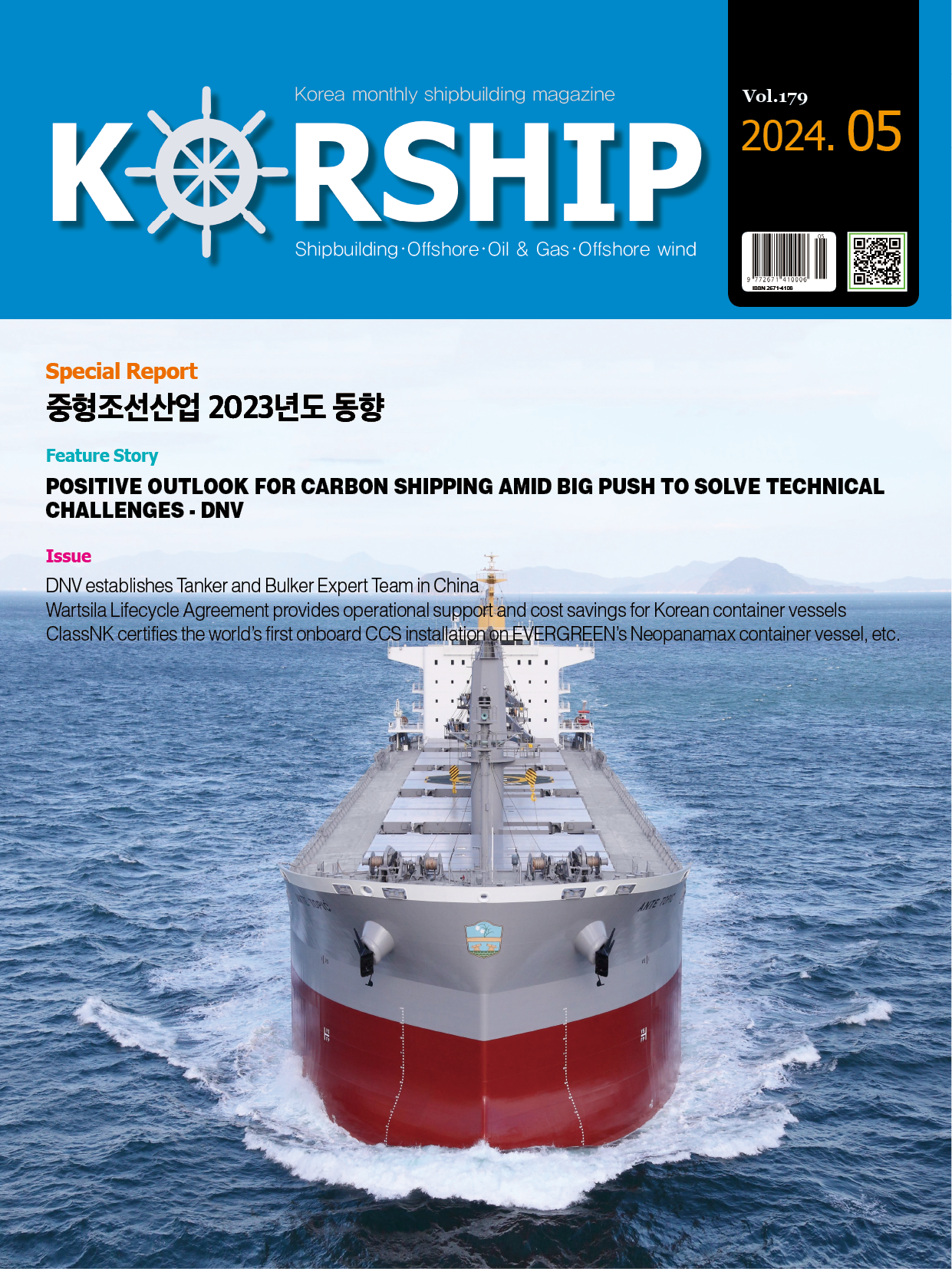Issue DNV and partners launch CETO joint industry project(JIP) to develop lo…
페이지 정보
작성자 최고관리자 댓글 0건 조회 1,935회 작성일 22-02-15 11:46본문
Equinor, Shell, TotalEnergies, Gassco and classification society DNV announced the kick-off of a new JIP to develop low-pressure solutions for the transportation of CO2 by ships. The CETO(CO2 Efficient Transport via Ocean) JIP will carry out the technology qualification of a low-pressure ship design and identify solutions to scale CO2 transportation volume, while reducing the associated risks, to support the development of opportunities in CCS. CETO is funded by the project partners and GASSNOVA through the CLIMIT programme and is expected to be completed in 2023.
Carbon capture and storage(CCS) will be a key technology if the world is to meet the goals of the Paris and Glasgow agreements. Although the technologies and the industry are very much still emerging, a possible challenge is connecting capture sources to facilities for use or storage sites, especially where pipelines are not an option. As a result, CO2 transport ship technology will be needed if large quantities are to be safely transported at costs that are commercially viable. Today, most transport of CO2 via ship takes place at small scale and at medium pressure(15 bar at -28ºC), limiting the possibilities of scaling up to meet future growth in CCS.
To transport CO2 safely and efficiently at industrial scale by ship, low pressure transport systems(approx. 7 bar at -49ºC) are a potential solution, as this enables much larger tank volumes, cargo capacities and therefore reduced transportation costs. However, the industry currently has little practical experience with the transport of liquid CO2(LCO2) under these conditions.
Johan Petter Tutturen, VP, Special Projects – Gas at DNV. “Low pressure CO2 ship designs are a potentially important piece of the chain, but they need to be reliable and meet accepted safety standards. That is why we are very pleased to be working together with this strong consortium of CCS stakeholders to identify the technical risks and challenges to enable safe and economical operations going forward.”
“As we build a wider global CCUS(carbon capture, utilisation and storage) network that connects CO2 emitters with sinks, it is critical that we are able to ship CO2 safely, economically and at scale,” said Syrie Crouch, VP Carbon Capture Utilisation and Storage at Shell. “Ensuring these CO2 transport vessels and their associated loading/unloading facilities are standardised to enable interconnectivity between capture and storage facilities will be key to success. Shell looks forward to working with the JIP on the next generation of CO2 ships to deliver this vision.”
“Equinor believes that low pressure ship transport is an interesting way to scale up CO2 transport solutions, but we need to make sure the technical risks are reduced to an acceptable level. That is why this project is important” Elisabeth Birkeland, VP for Carbon capture and storage solutions in Equinor, says.
The CETO JIP is named after Ceto, who is a primordial sea goddess in Greek mythology, and builds on an earlier project carried out by the partners that investigated the technology gaps and identified qualification activities to demonstrate that the technologies offer the required levels of operational safety and reliability.












